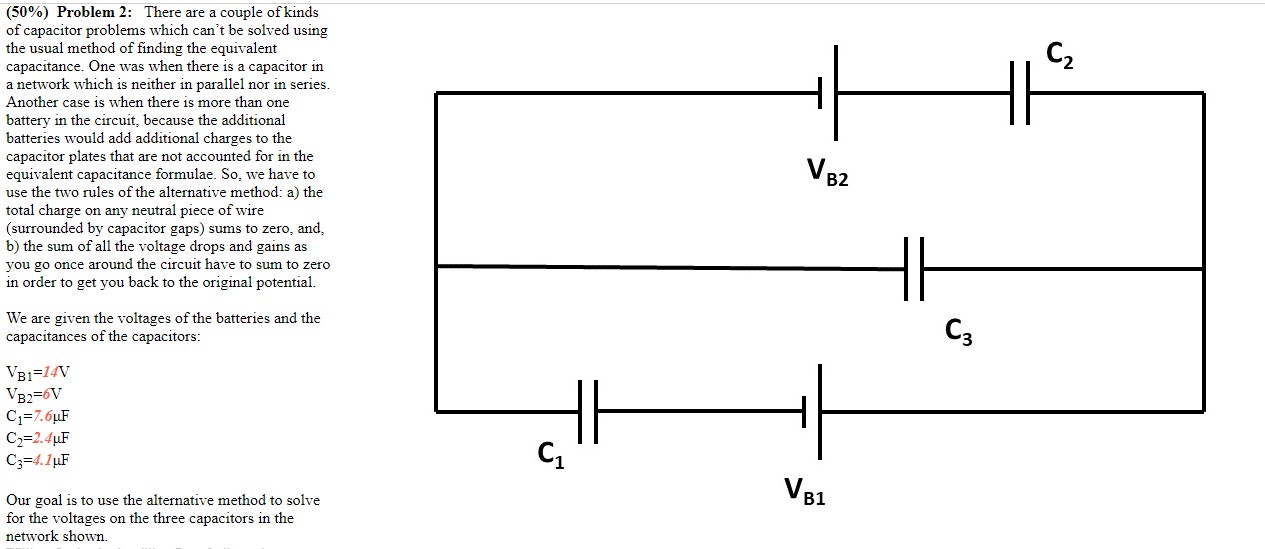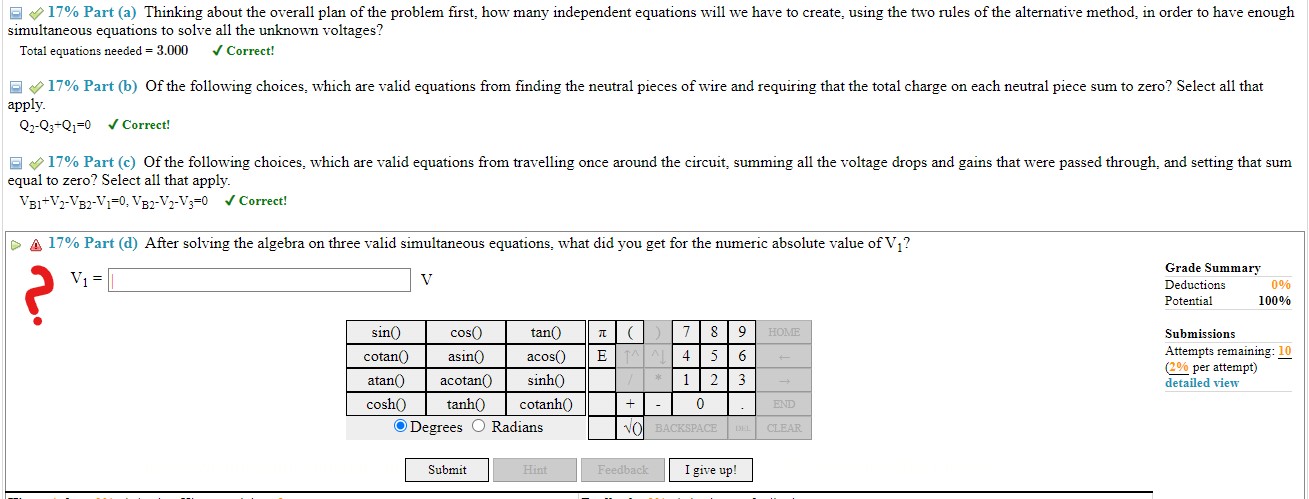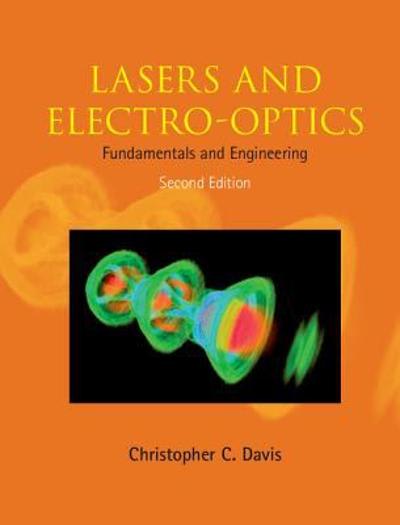Answered step by step
Verified Expert Solution
Question
1 Approved Answer
Hello I am unsure how to solve for this problem. Do we use the Jordan Gauss method to solve for V1? Can you please show
Hello I am unsure how to solve for this problem. Do we use the Jordan Gauss method to solve for V1? Can you please show steps and explain? Thank you


Step by Step Solution
There are 3 Steps involved in it
Step: 1

Get Instant Access to Expert-Tailored Solutions
See step-by-step solutions with expert insights and AI powered tools for academic success
Step: 2

Step: 3

Ace Your Homework with AI
Get the answers you need in no time with our AI-driven, step-by-step assistance
Get Started


